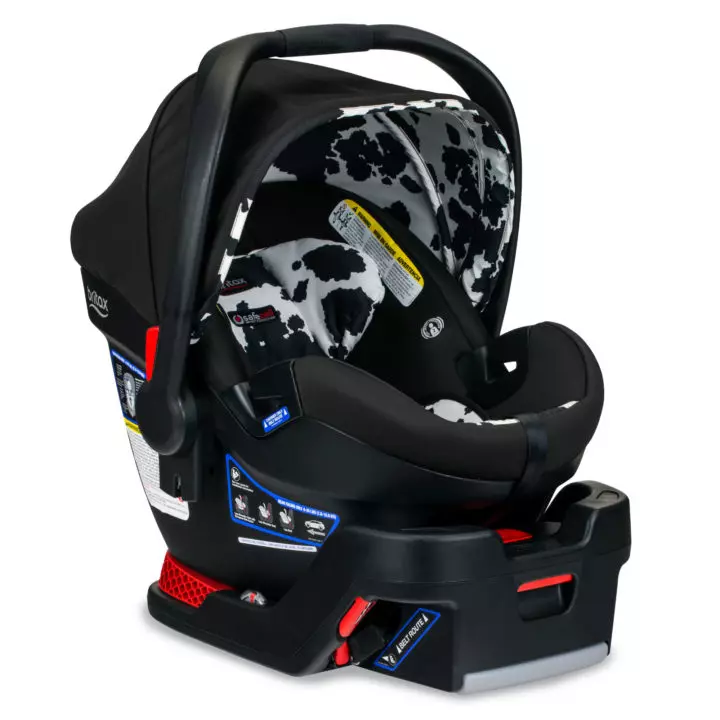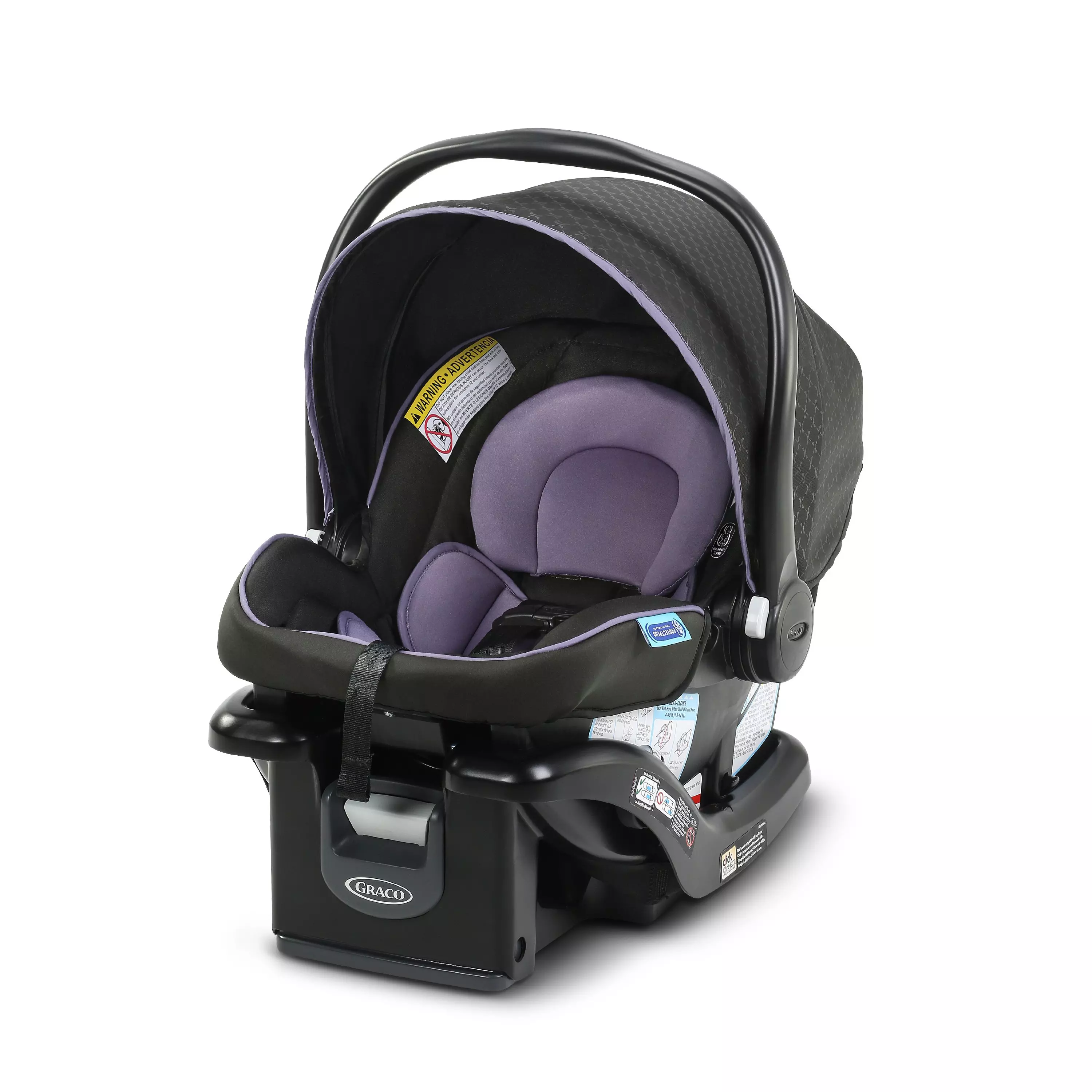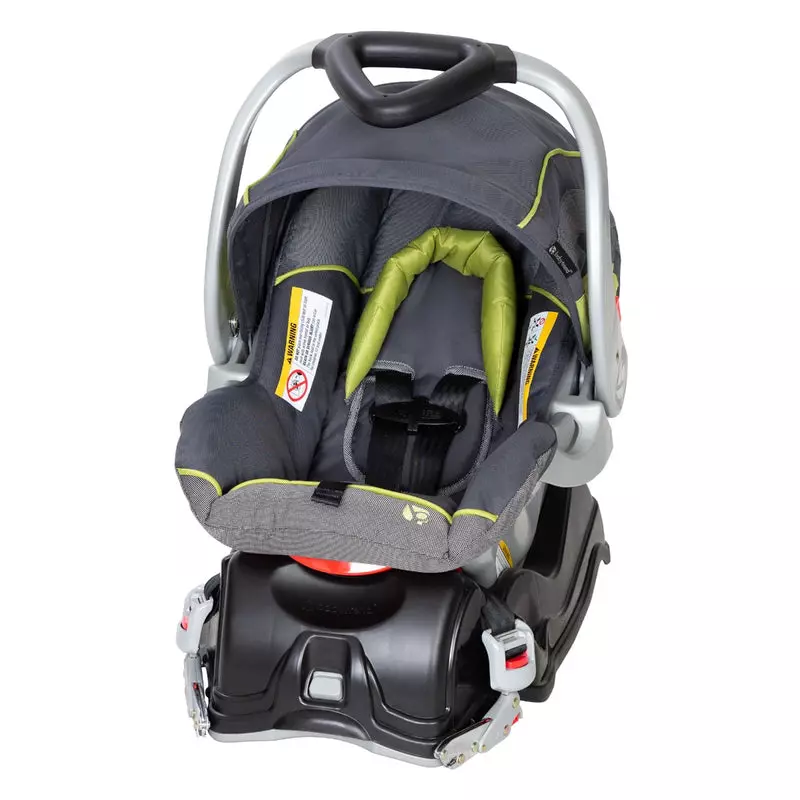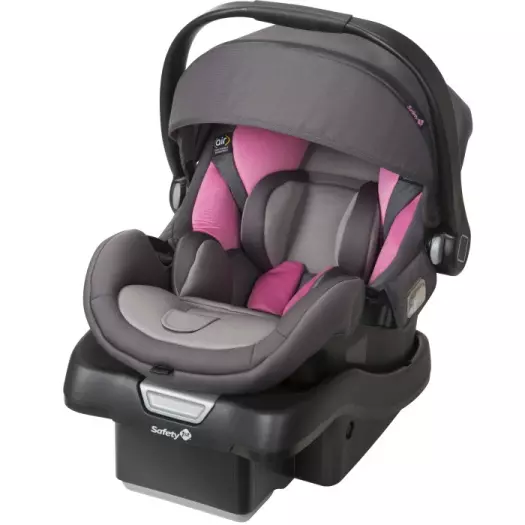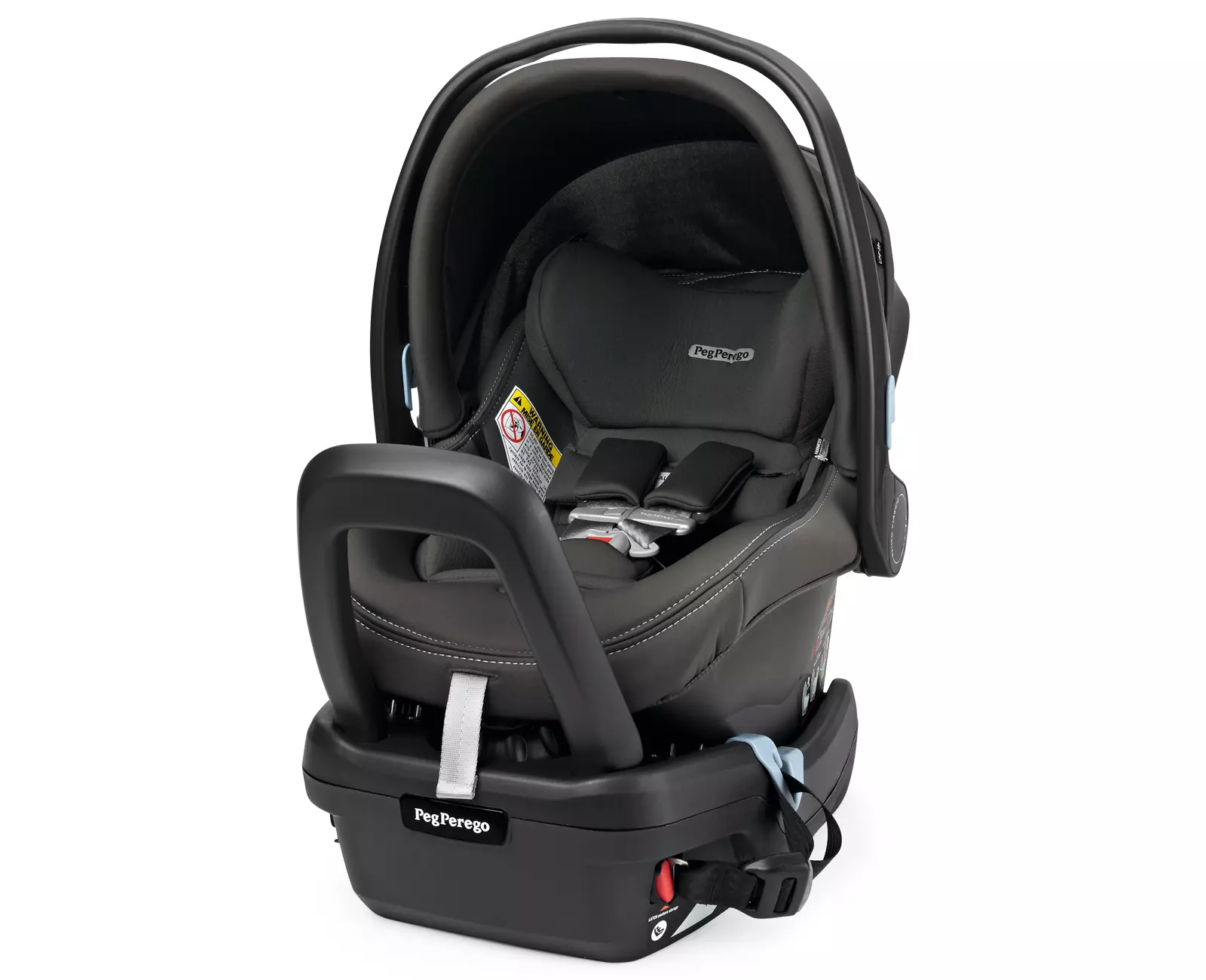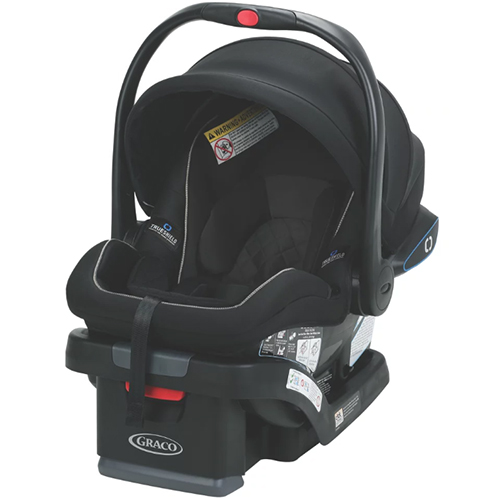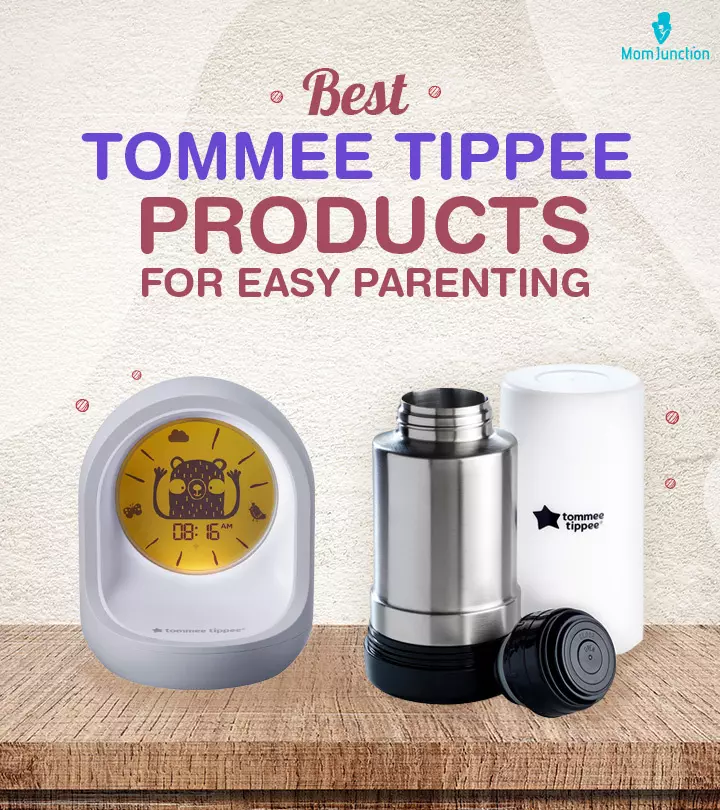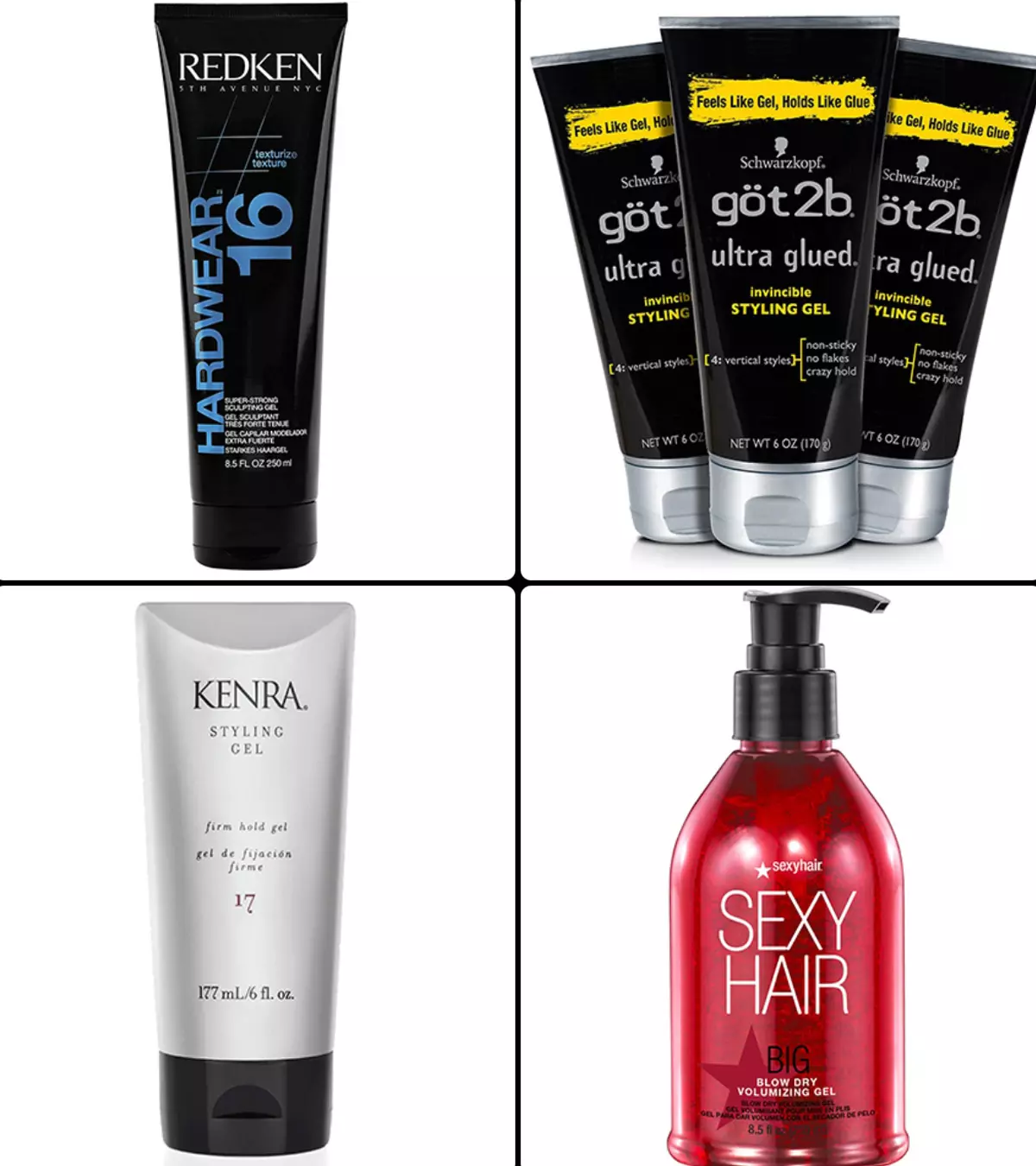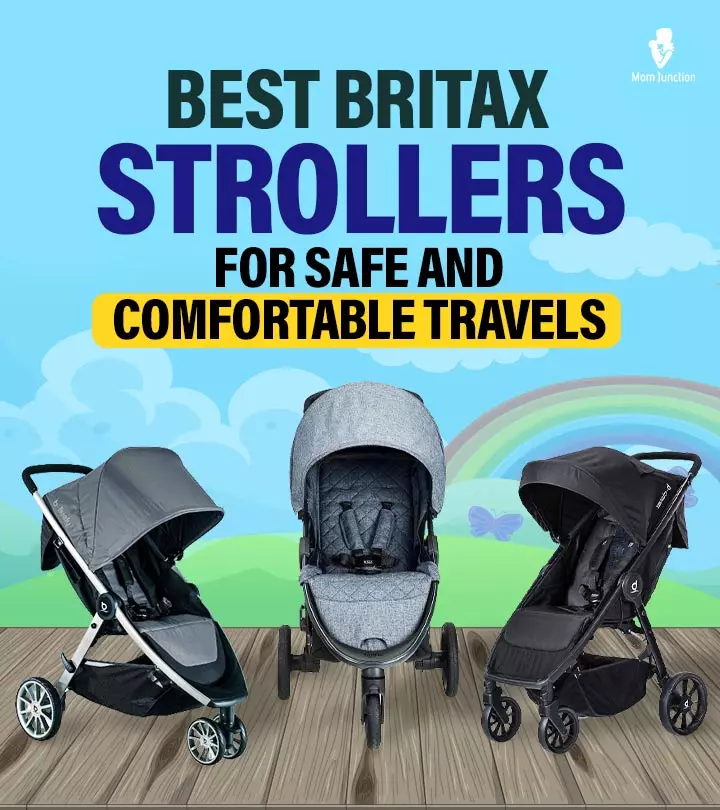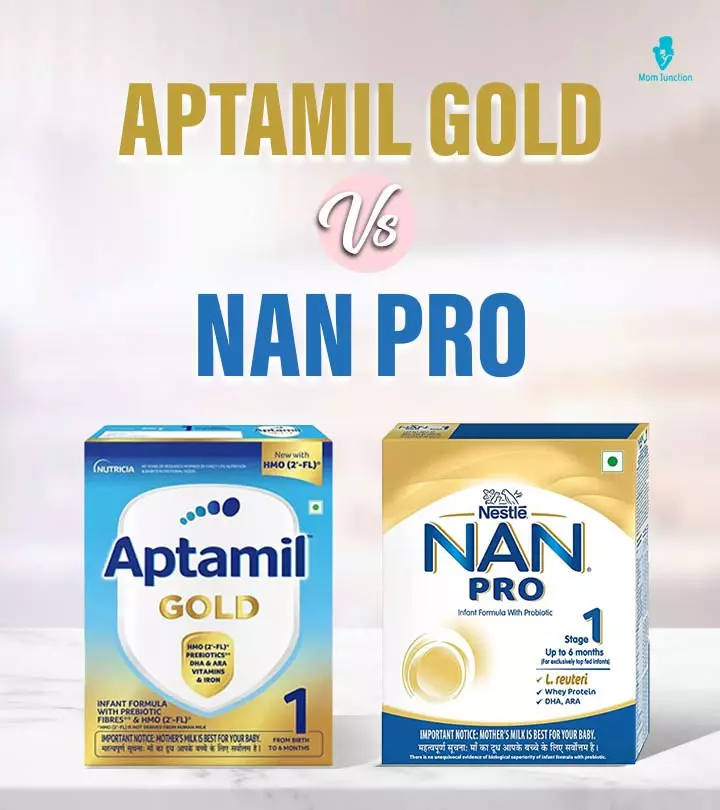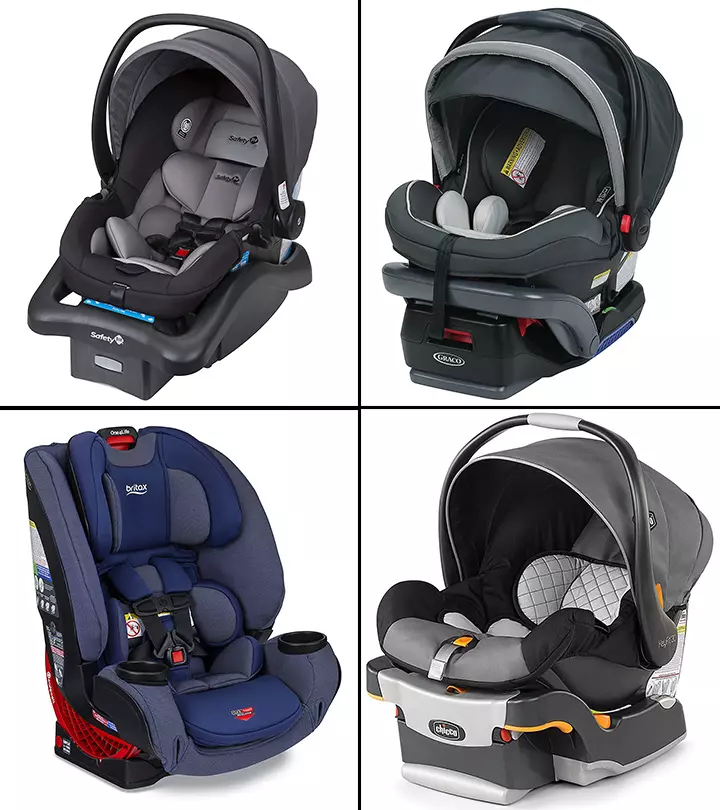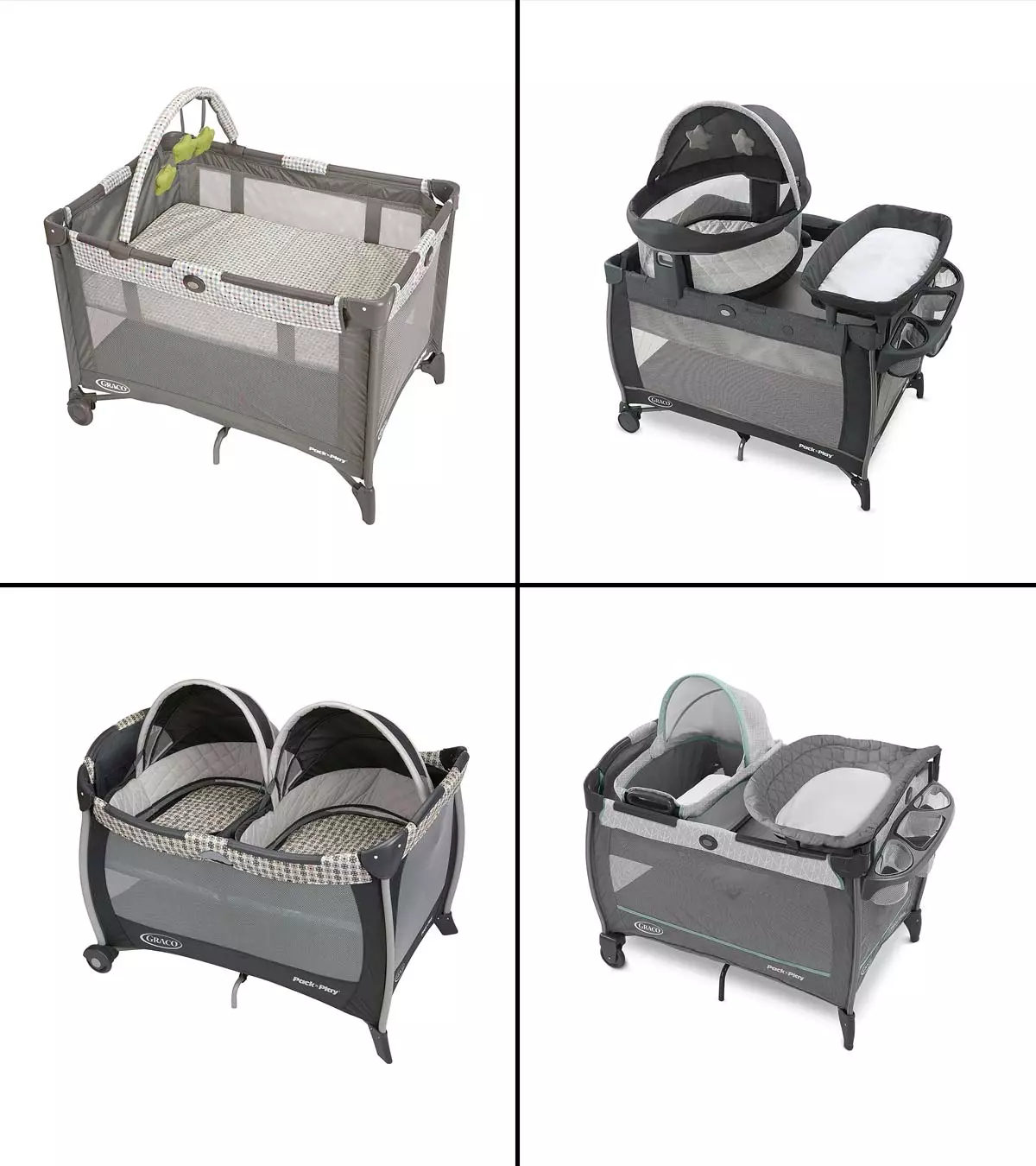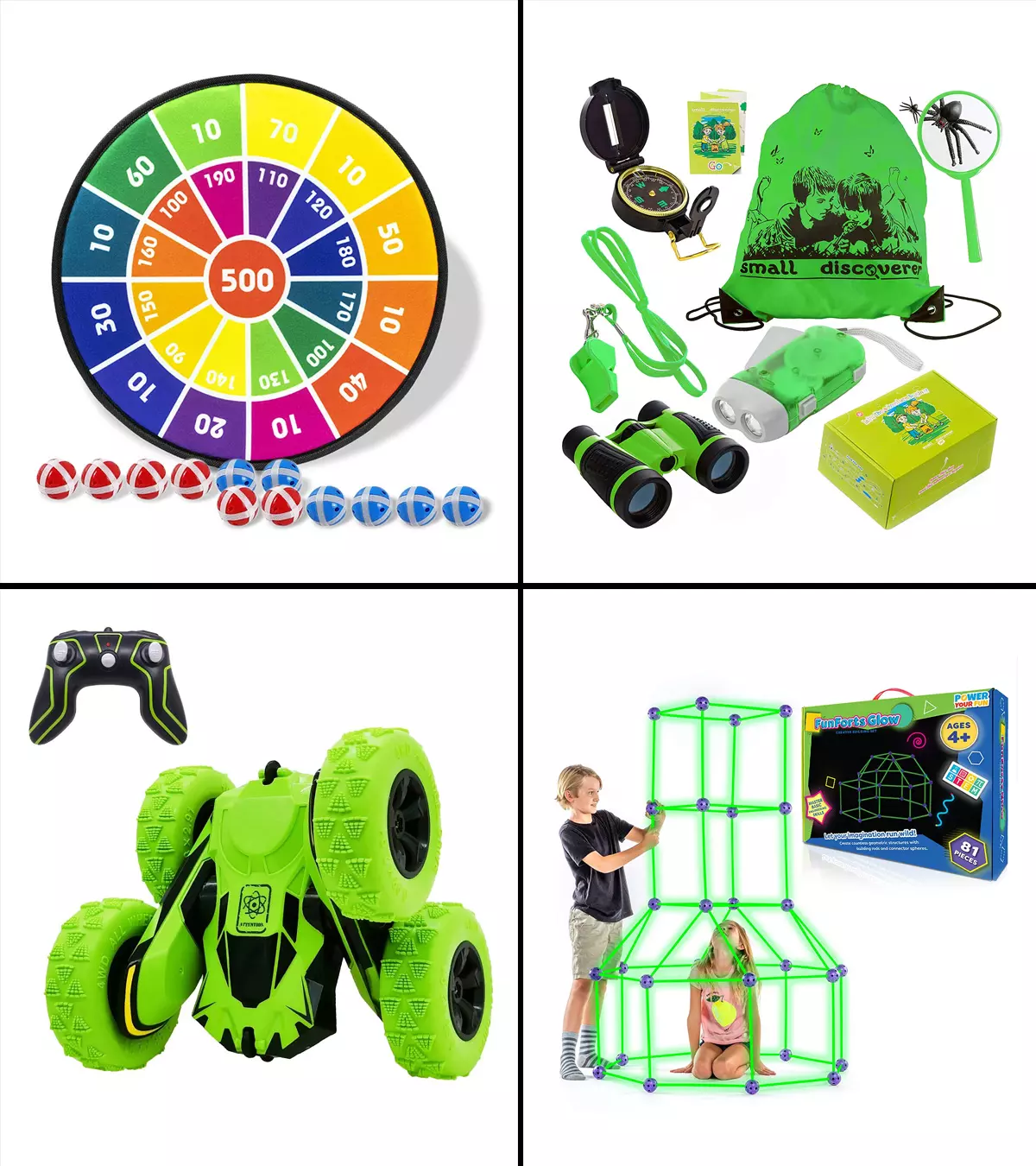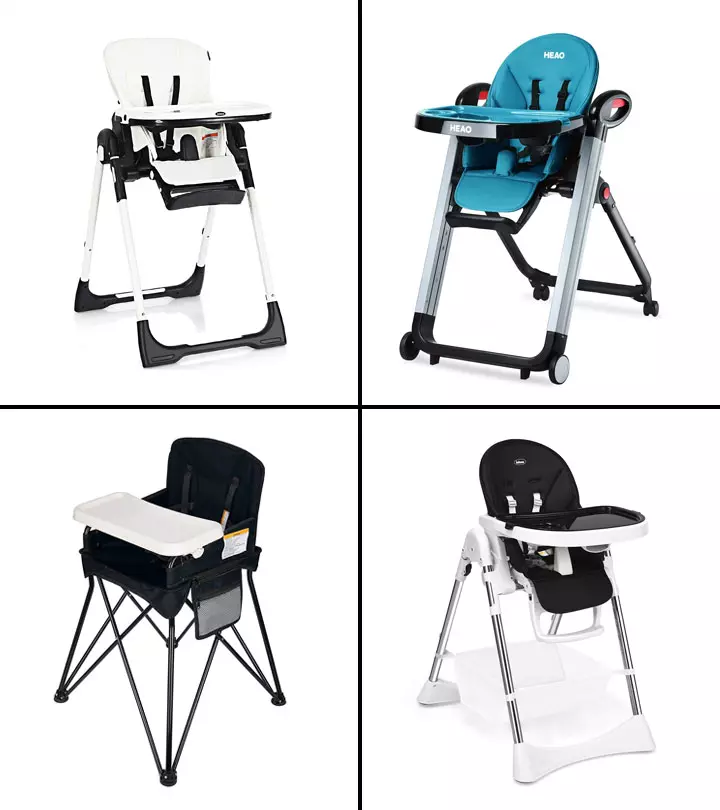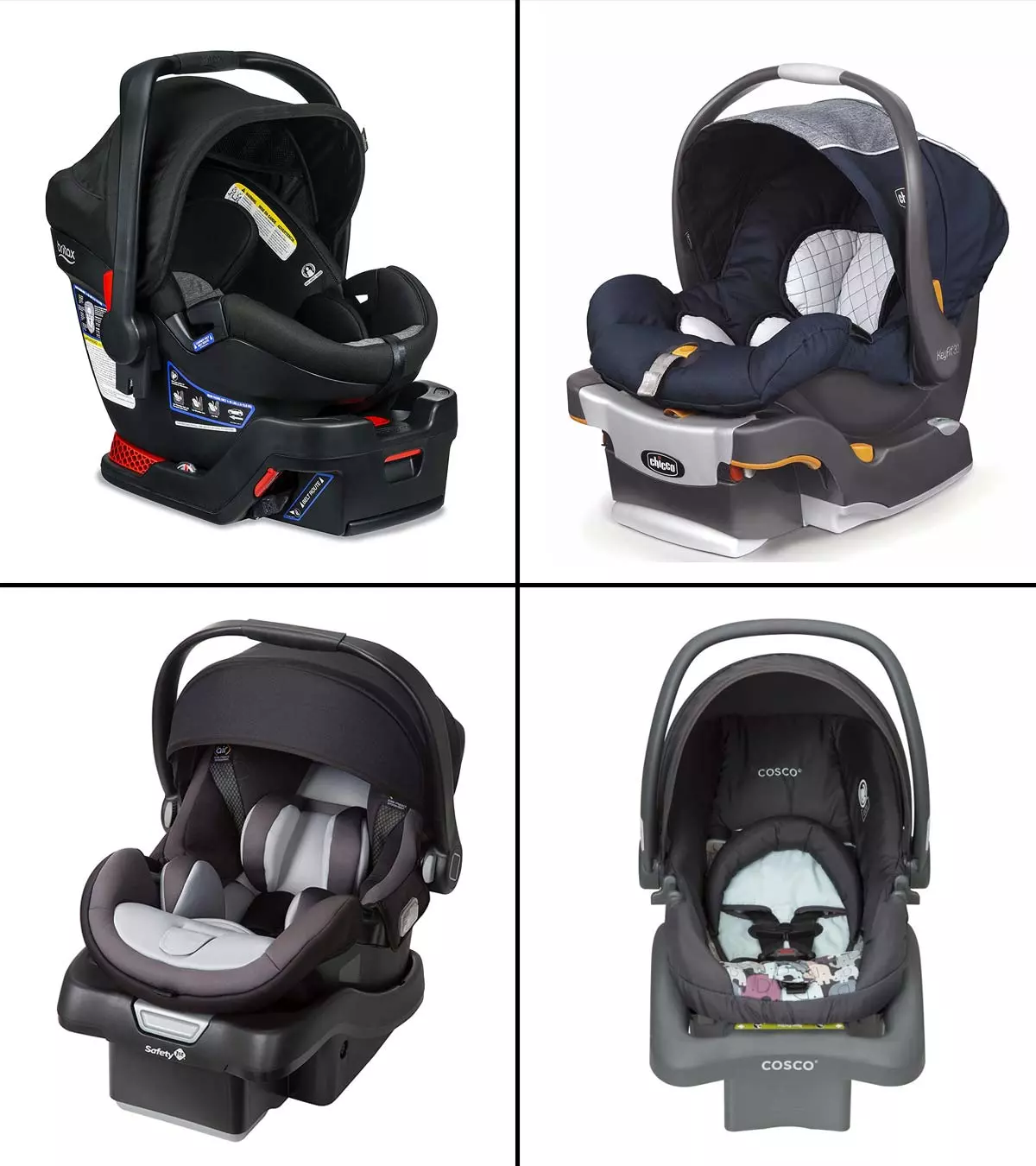
Image: MomJunction Design Team
Your little bundle of joy has arrived before time, but that’s okay! With our list of the best car seats for preemies, you can be all set to take your little one home. Newborn babies are delicate, but preemies can be even more fragile. Premature babies may also have medical conditions that may make it difficult for them to sit in a regular car seat. Therefore, finding the right car seat is crucial. You have to keep in mind that your baby needs maximum protection. The seat also has to be approved medically. Keeping your infant’s special needs in mind, we have curated this list of the right car seats. Read on to learn more.
Top Picks
Car Seat Safety For Preemies
Premature babies need to clear a car seat test before being released from the hospital. The American Academy of Pediatrics (AAP) recommends this for babies born before 37 weeks, and the test is performed on babies with low birth weight or special medical conditions. This test monitors the baby for bradycardia, apnea, or oxygen desaturation (1).
The baby’s breathing and heart rate must remain constant throughout the test to pass. Here are a few pointers to help you obtain the best results during the test.
- Straps: Strap up and buckle your child in the seat, just as you would when you are driving them home. Maintain a snug fit and make sure the child does not slouch. This will provide the doctors with a more accurate reading.
- Swaddling: Swaddle the baby well, so they are comfortable and sleeps through the test.
- Recline: Recline the seat to its highest position. This will keep their airways free and allow them to breathe continuously. The level indicator will tell you if the seat is well-reclined.
- Feeding: Avoid taking the test just after a feed. Give them time to digest the breast milk to avoid reflux action and vomiting.
8 Best Car Seats For Preemies
1. Best With Extra-Large Canopy: Britax B-Safe Ultra Infant Car Seat
Preemies require special care, which the Britax B-Safe car seat provides. The rear-facing micro-preemie car seat can accommodate babies between the weight range of 4 to 35 pounds with a strong, durable steel frame body and a crumple zone. In addition, the safe and effective baby car seat is moisture, odor, and stain-resistant — thanks to the Nanotex technology, and the reclining action is spring-assisted. This video review will give you more insights into the newborn car seat.
Pros
- Seat belt guide for extra safety
- Dual-layered side impact protection
- Safe cell technology
- Safe center latch
- Provides ease of installation
- Built-in locks
- Recline level indicators
- Extra-large canopy
Cons
- May be narrow for some babies
2. Best Lightweight: Graco SnugRide 35 Lite Lx Infant Car Seat
The Graco SnugRide preemie baby car seat is ideal for babies weighing four to 35 pounds. The seat weight is 7.2 pounds and it measures 18.07×14.41×27.4 inches. The lightweight, tried-and-tested car seat for preemies is designed with Protect Plus for excellent crash protection. It safeguards the baby from front, rear, side, and rollover impacts. It also includes a two-piece head and body support for optimal comfort. To make an informed decision before buying, you can check out this video.
Pros
- Easy-to-read level indicator
- Four-position adjustable base
- Rotating canopy
- Provides ease of installation via latch method
- Head and body support
- Snug fit
- Minimum weight limit—4 pounds
Cons
- May be hard to release
"The best part about this car seat is its pre-assembled design. Besides, the installation is straightforward and is lightweight enough to carry around. The latch system, however, could use some upgrades. Still, its safety features have made it my go-to seat."
 Do remember
Do remember3. Best With Removable Canopy: Chicco KeyFit 30 Infant Car Seat
An easy-to-install car seat for preemies, the Chicco KeyFit 30 incorporates the SuperCinchlatch feature. It includes a five-point harness strap and a single-pull tightener. The tiny baby car seat is recommended for babies between the weight range of 4 and 30 pounds. It comes with a ReclineSure leveling foot for a perfect base angle and Ride Right bubble indicators. In addition, the EPS energy-absorbing foam provides maximum impact protection. Check out this YouTuber’s unbiased review about this tried-and-tested car seat for premature babies.
Pros
- Smooth underside protection for vehicle seat
- Removable head, body, and neck support
- Removable canopy
- Integrated lock-offs
- Comfortable fabric
Cons
- Chest buckle may not sit flat
4. Best With Recliner Indicator: EvenfloLiteMax Infant Car Seat
If you’re looking for a car seat for your growing preemie, the EvenfloLiteMax accommodates children weighing four to 35 pounds. It has four shoulder harness positions and an ergonomic handle design for easy carrying. In addition, the premature baby car seat has an easy-to-install base with a vehicle belt lock-off. The infant car seat measures 18.3×17.8×30 inches.
Pros
- Lightweight
- Integrated belt lock
- Recliner indicator
- Four recline positions
- Extended usage
- Full coverage canopy
- Maximum weight limit of 35 pounds
Cons
- Back padding may not be enough
5. Best For Adjustable Height: Baby Trend Ez Flex Loc Infant Car Seat
The Baby Trend Ez Flex Loc preemie car seat has a five-point harness and four push-button height adjustments. The seat can be easily released with one-hand access, and the EPS foam absorbs impact energy for excellent crash protection. In addition, it features flexible base latch straps and a smooth carry handle to make it a secure car seat for premature infants.
Pros
- Soft head-rest
- Easy installation
- Adjustable height
- Level indicator
- Ideal for babies between the weight range of 5 and 30 pounds
Cons
- Could be heavy for some
6. Best Machine Washable: Safety 1st OnBoard 35 Air 360 Infant Car Seat
This extended rear-facing onBoard infant car seat from Safety 1st has a latch method for installation. With five layers of safety foam padding, the extra-padded, safe, and effective car seat for preemies keeps your little one comfortable. Further, the Air Protect structural design protects against side impacts and rear, front, and rollover impacts to offer safe travel for preemies. In addition, an easily adjustable five-point harness strap and four harness heights make this an ideal car seat for premature infants.
Pros
- Machine-washable
- Lightweight
- Dryer-safe
- Latch technology
- Energy-absorbing GCell HX patented race car foam
- Reinforced handle
- Soft foam
- Comfortable
- Upper weight limit of 35 pounds
Cons
- Excess padding may make the child feel hot
"Although hefty, this seat’s substantial padding keeps my baby comfortable during long car rides. Its build also seems sturdy, and the five-point safety harness offers peace of mind. The canopy attachment was stiff initially but has gotten smoother over time. Overall, it has been perfect for my needs."
 Caution
Caution7. Best With Energy-Absorbing EPS: Primo Viaggio 4/35
Designed with soft jersey fabric, the Primo Viaggio is a comfortable car seat for preemie babies between the weight range of 4 and 35lb. The car seat weight is 9.5 pounds and it is integrated with an anti-rebound bar with dual-stage cushioning for extra support.
The color-coded belt paths and compact handles make the seat easy to use and carry. In addition, a unique shell design with six vertical positions of this small baby car seat optimizes comfort and safety measures.
Pros
- Innovative shell design
- Energy-absorbing EPS
- Five-point harness
- Side impact protection
- No-rethread harness
- Provides ease of Installation with or without base
- Latch system installation
Cons
- Translucent headcover may not block the sun
8. Best Side-Impact Protection: Graco SnugRide SnugLock 35 LX Infant Car Seat
The Graco SnugRide SnugLock 35 LX Infant Car Seat is a multitasker with a canopy that can be adjusted with one hand. The InRight LATCH system offers a one-second LATCH attachment and an easy-to-read level indicator, eliminating guesswork during installation. The four-position adjustable, safe, and effective car seat for tiny babies is compatible with most cars. Safely constructed to meet and exceed US safety standards, its TrueShield Side Impact Technology provides advanced side impact overall protection.
Pros
- Silent shade canopy
- Five-point, front-adjust harness strap system
- Rear-facing car seat for preemies
- Upper weight limit of up to 35 pounds
- Safe material
Cons
- May not fit some car seats
- Can be cumbersome to clean
How To Choose The Right Preemie Car Seat?
Here are some pointers you should keep in mind when choosing a car seat for preemies.
- Weight: Preemies will need a car seat with a lower minimum weight limit than normal car seats. Look for a seat with a four-pound minimum requirement.
- Harnesses: The lowest harness slot must be lower than normal for a smaller baby. Carefully scrutinize the buckle position to ensure your child’s comfort. Look for shorter crotch buckles to keep the baby more secure. Specialized car seats for preemies with chest clips should be avoided, as these can obstruct the preemie’s chest and airway or reach their face, and the leg straps should not be too far apart. Also, ensure that the car seat adheres to the American belt path mechanism or a similar standard as set by the authorities.
- Durability: Since your baby is precious and needs some extra security, choose a preemie-safe car seat that is strong and durable. The seat shell should be a sturdy frame with good foam and cushioning for excellent crash protection.
- Special features: Infant carriers have adjustable harness height positions, indicators, latch installation, multiple reclining positions, canopies, and side-impact protection. Some convertible car seats for preemies also double as carriers and toddler seats as the baby grows. Pick a baby-friendly seat that offers maximum features.
Frequently Asked Questions
1. Does my preemie need a preemie car seat?
Preemie should be screened before they are discharged from the hospital to check if they can sit in a reclined position. If they can sit in a reclined position, a preemie needs a preemie-specific car seat. You may consider a preemie car bed if they cannot sit in a reclined position but can lie down (2).
2. How long can a premature baby be in a car seat?
Experts recommend that preemies should not sit for more than an hour in the car seat (3).
3. Can I put a baby in a car seat after feeding?
It is not advisable to put your preemie in a car seat as soon as you feed them. Wait for an hour, and also ensure you do not feed your preemie in a moving vehicle.
4. Can I use a convertible car seat as a preemie car seat?
No, you should stick to a preemie-specific car seat. Preemies need a special car seat.
5. What is the minimum weight that an infant seat or a convertible car seat can accommodate?
An infant-only car seat is ideal for babies from birth and until they reach 35 pounds. A convertible car seat is suitable for babies from birth and until they reach 40 pounds (4).
6. Do I need an infant insert with a preemie car seat?
Some babies may be smaller than expected and might need premature baby inserts. You can also opt for a preemie car seat with inbuilt cushions.
7. How should I install preemie car seats?
Preemie-friendly car seats are installed rear-facing only. However, ensure that you follow the manufacturer’s instructions for installing the car seat.
Why Trust MomJunction?
Preemies require optimal protection during traveling. This post brings you a well-structured list of the best car seats for preemies available in the market. We have curated a detailed post to provide the necessary information about various car seat features useful for preemies. These safe and effective car seats have advanced safety features and are durable, high-quality, and lightweight. This post also has a useful buying guide to help you pick the most suitable one.
Besides bringing tons of happiness and excitement, your preemie can also leave you feeling nervous and unprepared. And to travel with them with ease, you must invest in a car seat made specifically for their delicate and fragile body. Always ensure that the car seat you bring home has a minimum weight-holding capacity of four pounds, comes with shorter crotch buckles than regular car seats to keep your newborn safe, and is strong and durable. Also, avoid purchasing seats with chest clips as they may cause discomfort to their chest and airways. Lastly, for maximum protection, invest in car seats with adjustable harness height and reclining positions, easy-to-install latch method, indicators, and side-impact protection.
Infographic: Things To Consider When Using A Car Seat For Preemies
It is essential to use a car seat with preemie-friendly features regardless of whether it is the little one’s first ride home or the subsequent outdoor trips. One should also be careful about the strapping technique to keep the little one from sliding. The infographic lists car seat features and strapping techniques that can make car rides safer for the preemie.

Illustration: Momjunction Design Team
References
- Assessment of babies for car seat safety before hospital discharge.
https://www.ncbi.nlm.nih.gov/pmc/articles/PMC2810665/ - Car Seats: Information for Families
https://www.healthychildren.org/English/safety-prevention/on-the-go/Pages/Car-Safety-Seats-Information-for-Families.aspx - Bringing Your Premature Baby Home
https://kidshealth.org/en/parents/preemie-home.html - Car Seat Safety
https://kidshealth.org/en/parents/auto-baby-toddler.html - How to Keep Your Sleeping Baby Safe: AAP Policy Explained
https://www.healthychildren.org/English/ages-stages/baby/sleep/Pages/A-Parents-Guide-to-Safe-Sleep.aspx
Community Experiences
Join the conversation and become a part of our nurturing community! Share your stories, experiences, and insights to connect with fellow parents.
Read full bio of Ramona Dejesus-Curtis
Read full bio of Wedetso Chirhah
Read full bio of Poulami Nag
Read full bio of Rohit Garoo







